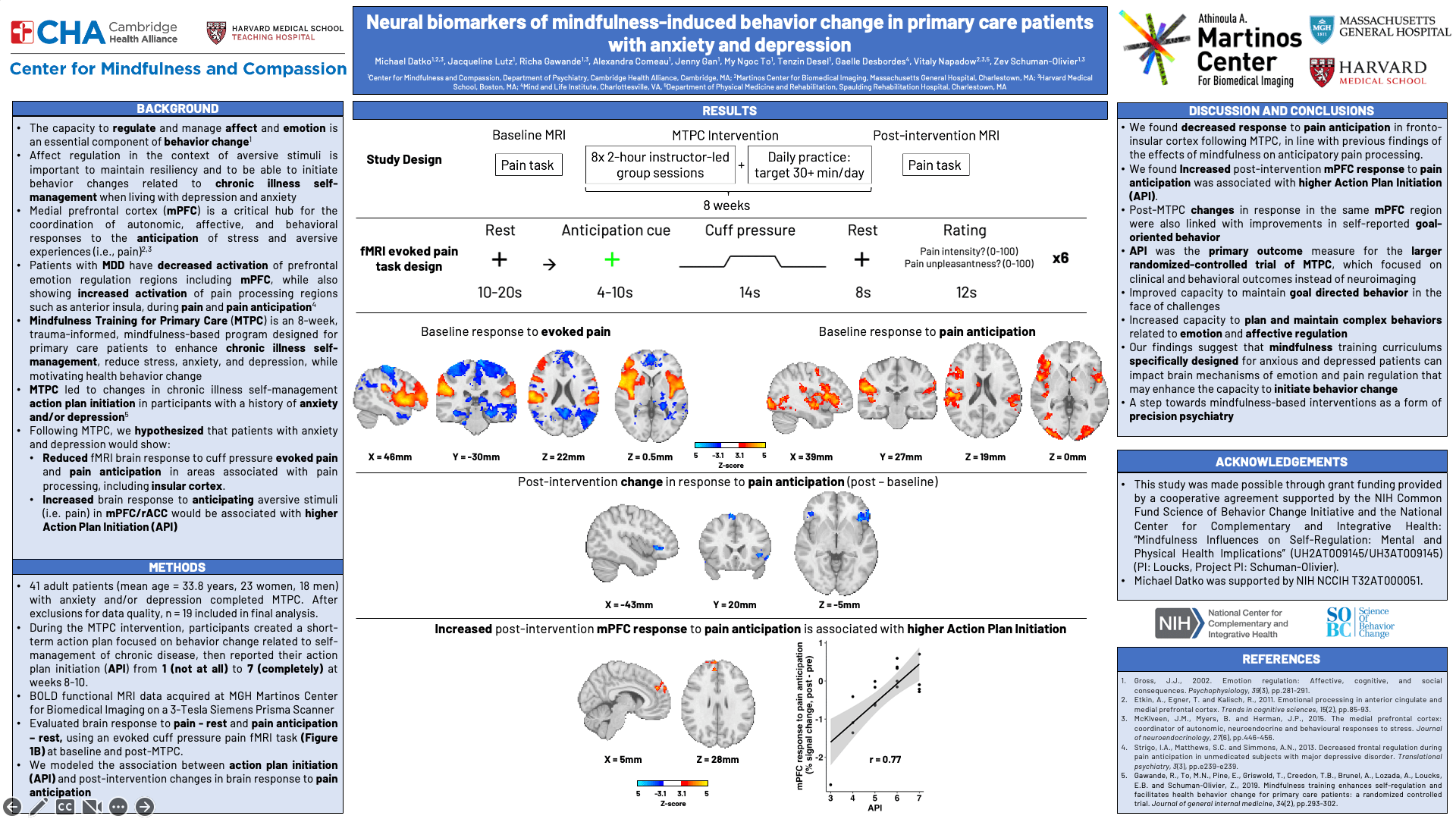Scientific Abstract
Background: Anxiety and depression disorders are marked by difficulties with emotion regulation that can exacerbate distress from aversive experiences, preventing patients from initiating behavior change to manage chronic mental illness. We hypothesized that mindfulness training-induced changes in functional MRI brain response to pain anticipation in emotion regulation regions would be associated with improvements in chronic disease self-management.
Methods: We used an evoked pressure pain task to examine how an 8-week mindfulness-based intervention, Mindfulness Training for Primary Care (MTPC), affects brain response during anticipation of aversive stimuli (i.e., pain) among patients with anxiety and/or depression. During the fMRI task at both baseline and post-MTPC, six separate cuff pressure pain stimuli were delivered to the left calf, each preceded by a cued pain anticipation period. During the MTPC intervention, participants created a short-term action plan focused on self-management of chronic illness, and reported their level of action plan initiation (API) from 1 (not at all) to 7 (completely) after MTPC. We compared fMRI response during pain anticipation between baseline and post-MTPC, and then modeled the association between post-MTPC change in brain response to pain anticipation versus API.
Results: Following the 8-week MTPC intervention, patients showed significantly decreased activation in bilateral fronto-insular cortex (FIC) during pain anticipation (left FIC: 232 voxels, p<0.001; right FIC: 134 voxels, p=0.014). Greater increase in response to pain anticipation in dorsal medial prefrontal cortex was associated with higher API (224 voxels, p<0.001).
Conclusions: Post-intervention increases in brain response to pain anticipation among regions supporting emotion regulation were associated with API, a measure of successful behavior change related to chronic illness self-management. Our findings suggest that mindfulness interventions specifically designed for anxious and depressed patients can impact brain mechanisms of emotion and pain regulation that may enhance the capacity to maintain goal directed behavior in the face of aversive experiences.
Search posters

